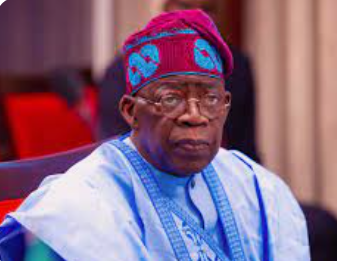The envisaged cabinet reshuffle was some sort of anti-climax considering the expectations of Nigerians from the regime of President Bola Ahmed Tinubu is almost one and a half in office.
An anti-climax came because many Nigerians had expected a comprehensive overhaul of the machinery of government and hoped that the new government would now be composed of quality and competent personnel that would have been sourced from all the nooks and crannies of the states.
Nigerians are now filled with unqualified disappointment and marked indignation. It never turned out to be a comprehensive overhaul as expected but a minor one, leaving the government with ministers who can be deemed as ‘same of the same.’
The implications of the recent move is not in any way lost on Nigerians who now seems resigned to fate that nothing will change in terms of the economic and social status in the current dispensation.
President Tinubu came into office with so much promise and great expectations considering the fact that he has garnered a lot of reputation with regards to the numerous strides that has taken place under his watch while in Lagos State but all these sense of optimism seems to be taking flight.
Rather, the government in its almost 18 months in office has not been able to attract the right calibre of personnel to man the critical sectors of government to deliver the goods in terms of good governance, rather, what has continued to happen and what Nigerians have continued to see is undue nepotism, cronyism and gross incompetence.
Those that have so far been given official positions in this government don’t seem to understand or are grappling to understand their positions and what they need to do to effectively serve Nigerians. The government has become an underachiever in all ramifications.
As the government is fast approaching its second anniversary, there is the need to comprehensively overhaul the cabinet and bring on board Nigerians with international contact and connections. I mean people in the mould of the Director-General of World Trade Organisation, Dr. Ngozi Okonjo-Iweala, Akinwunmi Adesina of the African Development Bank, and Amina Mohammed of the United Nations.
The importance of bringing Nigerians with international exposure on board cannot be overemphasised considering the impact their participation in government will bring to governance. One of such advantage is that it would be very easy for Nigeria to leverage on their contacts and global connections to secure financial and economic concessions for the country from relevant international bodies.
For instance, it won’t be difficult for a personality in the mould of people like Okonjo-Iweala and Mohammed to secure opportunities for the country in the international arena, owing to their vast global influence.
President Tinubu should do away with partisan and other petty considerations in the composition of his government if indeed he seeks to change the fortunes of all Nigerians.
Added to this is the urgent need for the government to revise many of its policies that are having negative effects on Nigerians, in a manner that would further ease their sufferings.
Two of such policies are the removal of payment of subsidies on petroleum products and the decision of the government to float the nation’s currency, the Naira, against major currencies of the world, most especially the major trading currency, the US Dollar.
Many argue that the worsening economic situation of Nigerians can be attributed to these decisions which have slowed down the economy and reduced the productivity of the private sector. The inability of the private sector to stay afloat in itself has led to loss of jobs across the board.
In recent times, 15 known brands left Nigeria, including Universal Rubber Company Ltd, Mother’s Pride Ventures Ltd, Errand Products Nigeria Ltd and Gorgeous Metal Makers Ltd.
The negative economic outlook in the country is further driven by the ceaseless desire of the government to impose multiple taxation on goods and services, particularly on major import commodities into the country by businessmen, who go abroad to source for many of these items that cannot be produced locally.
The resultant effects of all these on the common man is evident for all of us to see considering the fact that many Nigerians in their millions have slipped into abject poverty, with many saying the government is apparently becoming hopeless on how to solve the problem of mass poverty.
According to major global financial institutions, the over 129 million Nigerians represented a sharp rise from 40.1 per cent in 2018 to 56 per cent in 2024. The implication of this current situation should bother all right thinking Nigerians, particularly those in government.
It should bother them because the primary responsibility of government and governance is to guarantee the security of lives and property, but also to promote and ensure the welfare and wellbeing of all Nigerians as enshrined in the nation’s grundnorm, the 1999 Constitution (as Amended).
Those in the officialdom have been telling us to show some level of patience and understanding with it, with regards to the series of reforms it is currently undertaking in its efforts to reposition the country to the path of sustainable progress and growth.
It is pertinent to state that the call is indeed a legitimate demand from government to the led. However, for that kind of understanding to be taken by the people it must be noted that there is the need for the government and officials to send out the right impressions that will ultimately convince the people that it means well for them in terms of structural and institutional reforms, sacrifices and patriotism. This will make the people to cooperate with and support their reforms agenda.
On institutional reforms, there is the need for the government to reduce its size by reduction in the number of ministries, departments and agencies by cutting down on the cost of government. The easiest way to do this was through the implementation of the Orasanye Report.
The recent increase in the current weight and size of the government from 48 ministries to 50 as announced in the recent cabinet reshuffle is too big and unsustainable just as it is also sending the wrong signals to the already traumatised Nigerians.
There is the need for officials to demonstrate sacrifice in a manner that would give the impression that it means well for the people who are currently bearing the brunt of its policies that are pushing them to poverty.
As the government moves towards its second term, there is the need for a paradigm shift in its approach to governance in a manner that will steer the country away from the steady descent to abyss that it is currently headed.





